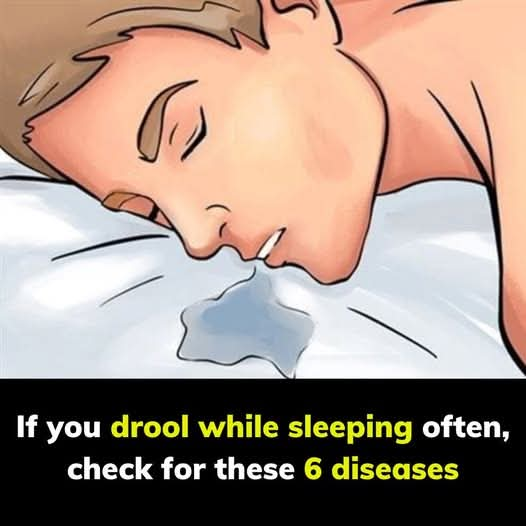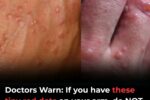If You Drool While Sleeping Often, Check for These 6 Possible Health Issues

Drooling during sleep might seem harmless or even funny, but if it happens often, it could be a sign your body is trying to tell you something important. Occasional drooling is normal, especially when you’re in deep sleep—but if your pillow is constantly wet, it might be time to look deeper.
1. Sinus or Nasal Infections
When your nasal passages are blocked due to colds, allergies, or sinus infections, you start breathing through your mouth. This increases the chances of saliva escaping while you sleep.
2. Sleep Apnea
This is a serious sleep disorder where breathing stops and starts repeatedly. People with sleep apnea often sleep with their mouths open and may drool more. If you snore heavily or feel very tired during the day, it’s worth getting checked.
3. Acid Reflux or GERD
Gastroesophageal reflux disease can cause excessive saliva production, especially when lying down. If you feel heartburn or a sour taste in your mouth at night, this could be linked to drooling.
4. Allergies
Seasonal allergies or food allergies can lead to increased mucus and blocked nasal passages, both of which encourage mouth breathing and drooling during sleep.
5. Tonsillitis or Throat Infections
When your throat is sore or your tonsils are inflamed, swallowing becomes painful. As a result, saliva collects in your mouth and leaks out during sleep.
6. Neurological Conditions
In rare cases, frequent drooling can be linked to neurological disorders such as Parkinson’s disease, stroke aftermath, or cerebral palsy. If drooling is paired with other unusual symptoms, medical advice is crucial.
What You Can Do
Try sleeping on your back, stay hydrated, treat allergies or sinus issues, and avoid heavy meals before bed. But if drooling becomes persistent and excessive, consulting a doctor can help uncover the real cause.






